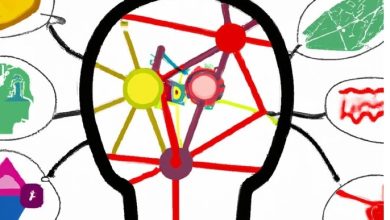Explore the top 10 benefits of eggs

Ever since people started rearing chickens at homes, they have been providing themselves with their nutrition while enjoying the benefits of eggs. Both egg whites and yolks are rich in nutrients.
Yolk contains fat-soluble vitamins, including vitamins A, D, and E, as well as fats, including essential omega-3 fatty acids, while most of the protein is found in egg whites.
Eggs are an important part of our diet. Their special recipe is very important to cook many foods in a special way. Eggs of various birds are eaten, the most common of which is chicken, as well as eggs of ducks, geese and cuckoos.
How much protein does eggs contain?
A medium-sized egg (53 grams) contains seven grams of complete protein, being a ‘complete protein’ means that an egg contains all the essential nine amino acids we need for growth and repair.
Most plant-based foods, such as grains, beans, nuts, and seeds, are imperfect proteins because they lack one or more of the essential amino acids we need. Eggs are a good source of vitamin B12, iron and essential omega-3 fatty acids, which makes them a valuable addition to the vegetarian diet.
Benefits of Eggs:
(1) Nutritious
Eggs are nutritious and are a useful source of some difficult nutrients like vitamins D and B12 as well as the mineral iodine. If you choose brands rich in omega-3 fatty acids, you’ll benefit from high omega-3 fatty acids as well as fat-soluble vitamins like vitamins A and E.
(2) Complete source of protein
Being a ‘complete protein’ means that eggs contain all the essential amino acids we need for growth and repair. This is important because our body cannot make these amino acids but it is important to get them from our diet. In addition, egg protein is considered to be highly digestible and has a quality of protein that is better than beef steak and similar to dairy.
(3) Important for pregnant and lactating mothers
Eggs are one of the best nutritional sources of choline. This diet, which is rarely talked about, is very important for brain functions, including the formation of cell membranes and memory. This is especially important for pregnant and lactating mothers, when proper supply of choline is necessary for normal brain development.
(4) Support heart health
Eggs are rich in many nutrients that enhance heart health. A study of nearly 500,000 people in China says that eating one egg per day can reduce the risk of heart disease and stroke, but experts insist that a healthy lifestyle is also necessary along with the use of eggs to be beneficial.
(5) Helpful in eye health
It’s normal for us to lose our eyesight as we get older, but some useful nutrients derived from a balanced diet can help protect and improve eye health. Eggs are an example of this, yolk contains large amounts of carotene, especially lutein and zeaxanthin, which are important for the prevention of macular degeneration and cataracts. Eggs are also a source of vitamin A, which is essential for good vision.
(6) Can prevent sarcopenia
Egg protein is considered to be helpful in muscle health and important for protecting muscle damage due to its excessive digestion. This is a condition called sarcopenia. Muscles play an important role in maintaining overall health, physical functions and balance, improving insulin sensitivity and reducing the risk of heart disease.
(7) Helpful in weight management
Eggs are rich in protein that is capable of saturating more than fat or carbohydrates. As a food choice, eggs are good. They also give a feeling of being saturated. In fact, studies show that an egg breakfast is more durable than a breakfast with calorie-rich carbohydrates and even more can help reduce your calorie intake later in the day.
(8) Helpful in excellent body composition
Adding eggs to the diet increases muscle protein synthesis and reduces fat, which helps to achieve the best body composition. As any bodybuilder knows, the amino acid leucine is important for muscle synthesis and eggs are a useful source of this amino acid that provides about 500 mg of leucine to the average egg.
(9) Improve the immune system
Eggs contain many essential nutrients, bioactive compounds and high-quality proteins. Studies have shown that when mixed with milk products, they can regulate the immune system and help eliminate inflammation.
(10) Negative effects on the planet are also negligible
It is also said about eggs that while the proteins found in them are more effective in effect than the proteins obtained from other animals, it is also important that they also have no negative effects on our planet.
How many eggs are safe to eat?
Several studies have shown that eggs can be eaten in moderate amounts, i.e., about one egg can be enjoyed as part of a healthy, balanced diet daily.
Are eggs safe for everyone? In the past, Salmonella poisoning was a concern, especially if eggs were eaten raw or lightly cooked, but after changes to production protocols, the Food Standards Agency (FSA) changed its guidelines. Current recommendations confirm that infants, children, pregnant women and the elderly can safely eat raw or lightly cooked eggs.
Another safety concern about eggs is that young children in particular may be allergic to eating them. Although most children recover from egg allergies by school-going age, in some cases it sometimes persists until adulthood. Overall, eggs are best for health.
Eggs are highly nutritious and are a cheap source of complete and digestible protein. They contain important nutrients, including choline, which helps in heart health and brain development.
Their nutritional importance makes them useful for maintaining a healthy weight and improving body composition. As long as you’re not allergic to them, eggs are a valuable addition to a healthy, balanced diet, regardless of your age.




